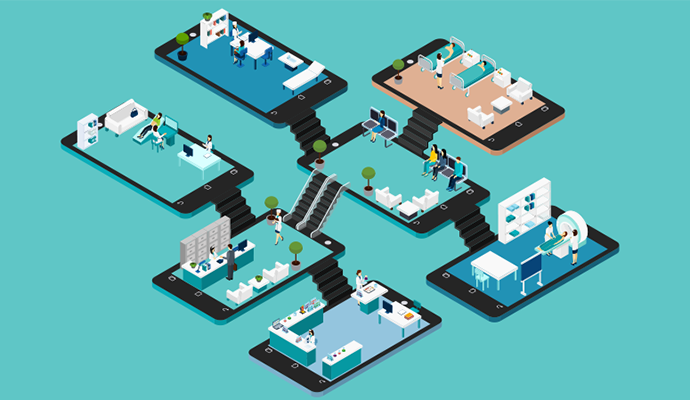GE Healthcare Unveils RPM Solution to Detect Patient Deterioration
The remote patient monitoring (RPM) technology aims to help clinicians identify patient deterioration early to reduce intensive care unit (ICU) admissions and improve patient outcomes.

Source: Getty Images
- GE Healthcare recently announced the introduction of its newest remote patient monitoring (RPM) technology, Portrait Mobile, which uses wearable wireless sensors to help clinicians detect patient deterioration earlier than traditional methods.
Using RPM technology for early detection of patient deterioration may reduce length of stay and intensive care unit (ICU) admissions and improve patient outcomes, GE Healthcare stated.
Globally, nearly 65 percent of hospital patients and over 90 percent of post-acute care patients are monitored manually, which could lead to missed or delayed vital sign observations, the press release reported.
According to a national UK audit, 57 percent of adult in-hospital cardiac arrests occurred on the wards, and only 5 percent occurred in the ICU, where patients are continuously monitored.
Most patients who end up in cardiac arrest or critical care, don’t suddenly deteriorate but rather show abnormal vital signs that could go unnoticed by clinicians, GE Healthcare stated.
“In an evaluation clinical study conducted at a London hospital in the UK, 90 percent of nurses reported that they feel more reassured about their patient’s condition when continuous monitoring is used versus vital signs spot check measuring,” Erno Muuranto, engineering director at GE Healthcare in Finland said in the press release. “Portrait Mobile provides reliable measurement technology and meaningful alarms in a mobile setting.”
Through Portrait Mobile, respiration rate, oxygen saturation, and pulse rate for general hospital and post-surgery patients are captured, allowing caregivers to monitor vital changes that could indicate a potential cardiorespiratory complication or infectious disease.
The RPM solution also lets patients move about the hospital without being restricted to the bedside, the press release mentioned. Patient mobility may even help improve patient outcomes and reduce the length of stay, lowering costs and elevating patient satisfaction.
This is not the first RPM technology GE Healthcare has worked on. Earlier this month, GE Healthcare and Medtronic received FDA clearance, allowing them to combine solutions to advance patient monitoring for better patient care quality and outcomes.
The integration offers continuous monitoring access at the bedside, in transport, and networked to the electronic medical record (EMR), assisting providers in increasing efficiency, enhancing patient safety, and improving quality of care, the press release stated.
“Our longstanding collaboration with Medtronic allows GE Healthcare to integrate clinically advanced parameters to enable clinicians with precision monitoring for individualized care,” Neal Sandy, general manager for Monitoring Solutions at GE Healthcare, said in the press release.
“We are able to add these capabilities to both new and existing enterprise monitoring systems, ensuring clinicians have access to real-time, reliable patient insights that can play a critical role in care decisions and outcomes,” Sandy continued.
